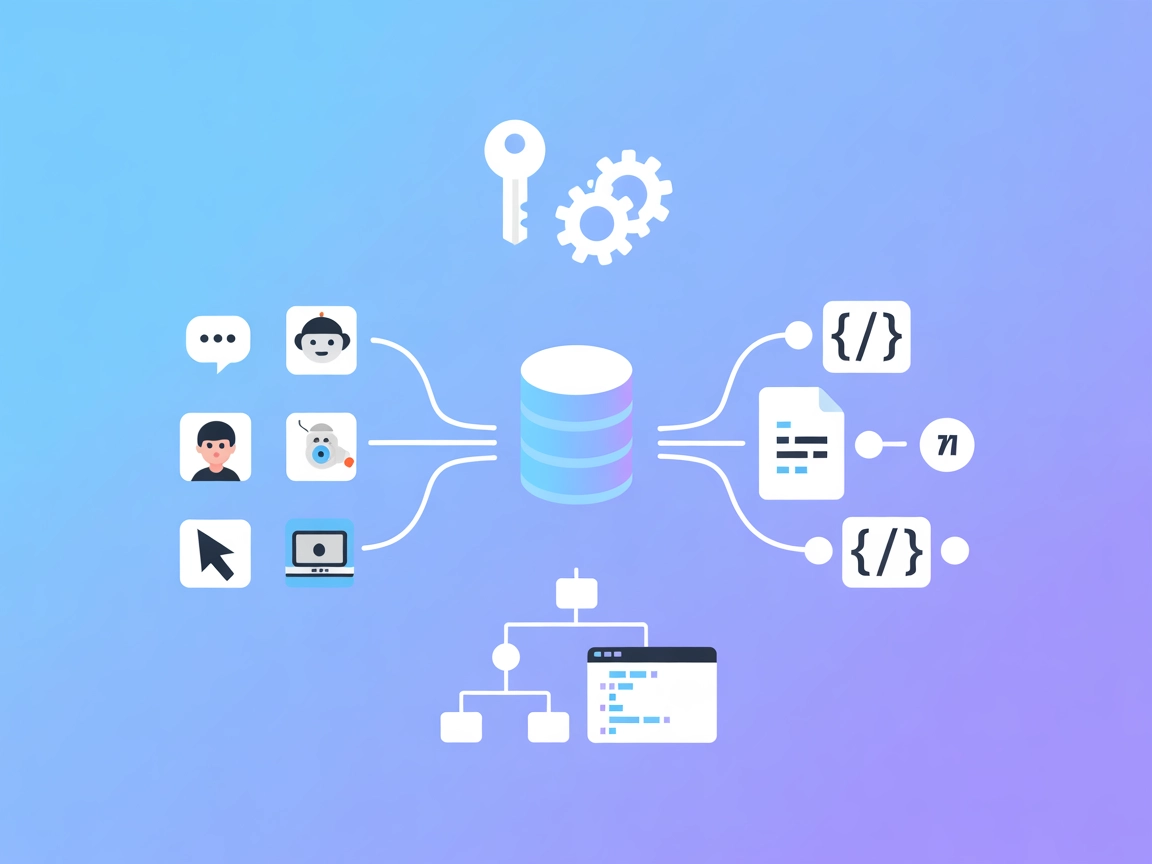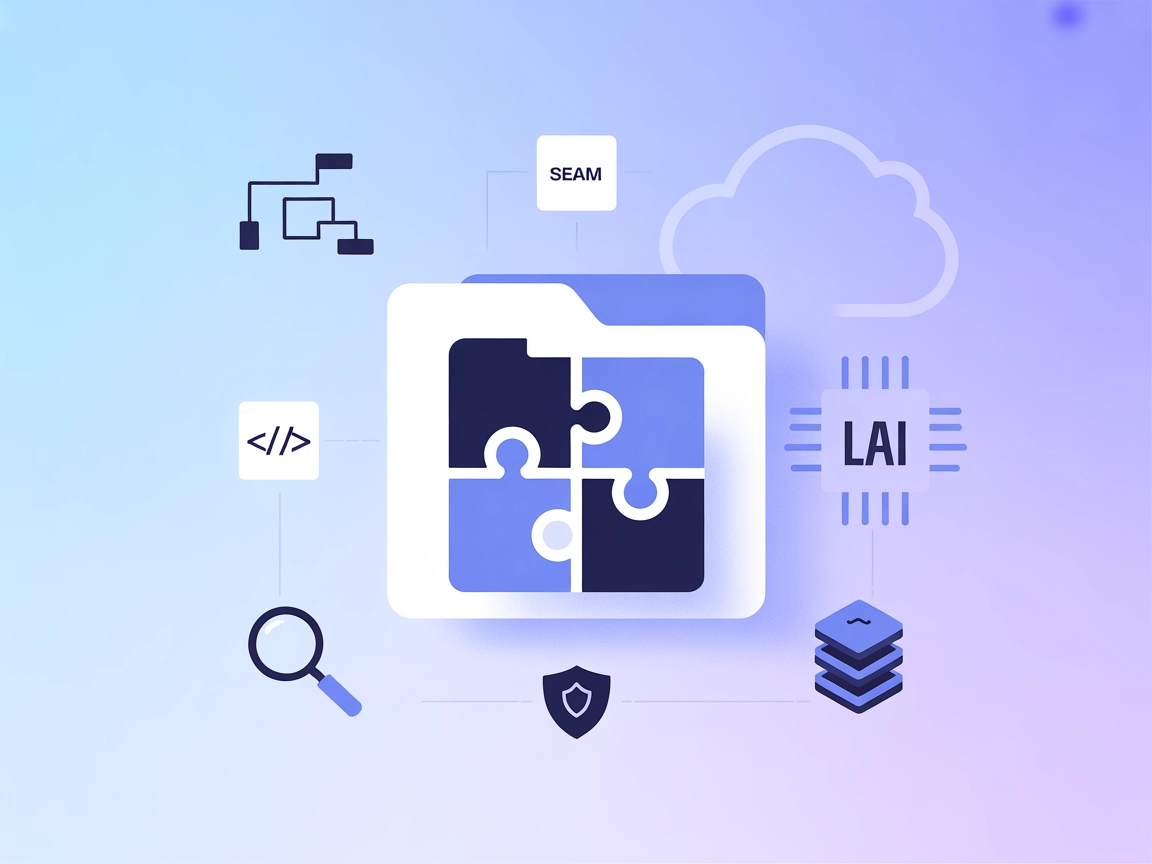
OpenAPI MCP Server
The OpenAPI MCP Server connects AI assistants with the ability to explore and understand OpenAPI specifications, offering detailed API context, summaries, and e...

Validate OpenAPI 2.0 and 3.0 specs automatically in your developer workflows using the APIMatic Validator MCP Server for robust, standards-compliant APIs.
FlowHunt provides an additional security layer between your internal systems and AI tools, giving you granular control over which tools are accessible from your MCP servers. MCP servers hosted in our infrastructure can be seamlessly integrated with FlowHunt's chatbot as well as popular AI platforms like ChatGPT, Claude, and various AI editors.
The APIMatic Validator MCP Server is a Model Context Protocol (MCP) server designed to validate OpenAPI 2.0 and 3.0 specification files using the APIMatic API. By acting as a bridge between AI assistants and the APIMatic validation service, it enables developers and tools to automate the process of verifying API specifications in both JSON and YAML formats. This integration streamlines workflows by providing LLMs and development platforms with the ability to submit OpenAPI files for validation and retrieve comprehensive summaries, helping ensure API documentation quality and compliance. The server is tailored for seamless MCP-based integrations, making it easy to incorporate into modern developer environments and AI-powered tools.
No prompt templates are documented or mentioned in the repository.
No explicit MCP resources are listed or described in the repository documentation.
"@apimatic/apimatic-validator-mcp@latest"
mcpServers configuration to include:{
"apimatic-validator": {
"command": "npx",
"args": ["@apimatic/apimatic-validator-mcp@latest"]
}
}
Use environment variables for the APIMatic API key:
{
"apimatic-validator": {
"inputs": {
"apiKey": "${APIMATIC_API_KEY}"
},
"env": {
"APIMATIC_API_KEY": "your-api-key-here"
}
}
}
"@apimatic/apimatic-validator-mcp@latest"
{
"mcpServers": {
"apimatic-validator": {
"command": "npx",
"args": ["@apimatic/apimatic-validator-mcp@latest"]
}
}
}
Use environment variables:
{
"mcpServers": {
"apimatic-validator": {
"env": {
"APIMATIC_API_KEY": "your-api-key-here"
}
}
}
}
"@apimatic/apimatic-validator-mcp@latest"
{
"mcpServers": {
"apimatic-validator": {
"command": "npx",
"args": ["@apimatic/apimatic-validator-mcp@latest"]
}
}
}
{
"apimatic-validator": {
"env": {
"APIMATIC_API_KEY": "your-api-key-here"
}
}
}
"@apimatic/apimatic-validator-mcp@latest"
{
"mcpServers": {
"apimatic-validator": {
"command": "npx",
"args": ["@apimatic/apimatic-validator-mcp@latest"]
}
}
}
{
"apimatic-validator": {
"env": {
"APIMATIC_API_KEY": "your-api-key-here"
}
}
}
Using MCP in FlowHunt
To integrate MCP servers into your FlowHunt workflow, start by adding the MCP component to your flow and connecting it to your AI agent:

Click on the MCP component to open the configuration panel. In the system MCP configuration section, insert your MCP server details using this JSON format:
{
"apimatic-validator": {
"transport": "streamable_http",
"url": "https://yourmcpserver.example/pathtothemcp/url"
}
}
Once configured, the AI agent is now able to use this MCP as a tool with access to all its functions and capabilities. Remember to change “apimatic-validator” to whatever the actual name of your MCP server is and replace the URL with your own MCP server URL.
| Section | Availability | Details/Notes |
|---|---|---|
| Overview | ✅ | Provides OpenAPI validation via APIMatic API |
| List of Prompts | ⛔ | No prompt templates documented |
| List of Resources | ⛔ | No explicit resources listed |
| List of Tools | ✅ | OpenAPI validation tool |
| Securing API Keys | ✅ | Environment variable documented |
| Sampling Support (less important in evaluation) | ⛔ | Not mentioned |
Based on the above, the APIMatic Validator MCP Server offers basic but essential MCP integration for OpenAPI validation, with good setup instructions and strong security practices for API keys. However, it lacks documentation on prompt templates, resources, and sampling/roots support, which limits advanced MCP features. It is a solid, focused tool for its intended purpose.
| Has a LICENSE | ⛔ |
|---|---|
| Has at least one tool | ✅ |
| Number of Forks | 9 |
| Number of Stars | 3 |
My rating: 4/10.
The APIMatic Validator MCP Server is practical and clearly documented for setup and API validation, but lacks advanced MCP features and broader community adoption. It’s a focused utility for OpenAPI validation within MCP-enabled environments.
It validates OpenAPI 2.0 and 3.0 specification files (in JSON or YAML) using the APIMatic API, returning detailed summaries to help ensure API quality and compliance. It can be used in developer tools, CI/CD workflows, or by AI assistants for on-the-fly API spec validation.
Automated API spec validation in CI/CD pipelines, documentation quality assurance, integration testing, and enabling AI-powered editors or chatbots to validate OpenAPI files as you work.
Always store your API key in environment variables, not directly in configuration files. Each setup example includes instructions for passing the API key securely to the MCP server process.
No, this MCP server is focused on OpenAPI validation and does not document prompt templates or additional MCP resources.
Add the MCP server in your FlowHunt flow, configure its details in the MCP component, and connect it to your AI agent. This allows agents to use the validator as a tool, providing OpenAPI validation capabilities within your flows.
Enhance your API development pipeline with the APIMatic Validator MCP Server. Ensure quality and compliance by integrating automated spec validation into your workflows.

The OpenAPI MCP Server connects AI assistants with the ability to explore and understand OpenAPI specifications, offering detailed API context, summaries, and e...

The OpenAPI Schema MCP Server exposes OpenAPI specifications to Large Language Models, enabling API exploration, schema search, code generation, and security re...

The Opik MCP Server connects the Opik platform with IDEs and development tools, enabling AI assistants to access project management, prompt templates, traces, a...
Cookie Consent
We use cookies to enhance your browsing experience and analyze our traffic. See our privacy policy.